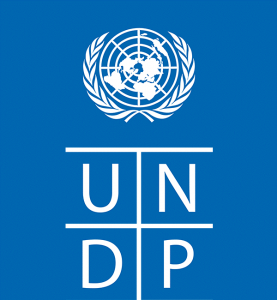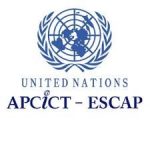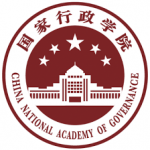I. ASEAN Network of Public Service Training Institute (PSTI)

(1) Purpose
The ASEAN Network of Public Service Training Institutes (PSTI) was proposed by Singapore at the 2nd ASEAN Heads of Civil Service (AHOCS) Retreat in Manila on 2 November 2017, in recognition of the role of the PSTIs in developing the capabilities of the public services in the ASEAN Member States. The ASEAN PSTI Network is established to promote cooperation and exchanges among the PSTIs in learning and people development, and to enhance their roles in supporting the transformation of their respective public services.(2) Objective/AimsThe ASEAN PSTI Network aims to:
- Build a community of PSTI senior officials who are responsible for learning and development of public officials;
- Promote the exchange of good practices and lessons in building capabilities for the public service; and
- Strengthen the learning and development competencies of PSTI professionals.
(3) STRUCTURE AND COMPOSITION
The ASEAN PSTI Network will comprise representatives from the designated Public Service Training Institute (PSTI) in each of the ASEAN Member States.
- Brunei Darussalam: Civil Service Institute (CSI), Prime Minister’s Office
- Cambodia: Royal School of Administration (RSA)
- Indonesia: Civil Service Development Centre (CSDC), National Civil Service Agency
- Lao PDR: Public Administration Research and Training Institute (PARTI), Ministry of Home Affairs
- Malaysia: National Institute of Public Administration (INTAN)
- Myanmar: Central Institute of Civil Service, Union Civil Service Bo
- Philippines: Civil Service Institute (CSI), Civil Service Commission
- Singapore: Civil Service College (CSC)
- Thailand: Civil Service Training Institute (CSTI), Office of the Civil Service Commission
- Viet Nam: National Academy of Public Administration (NAPA)
(4) CONVENOR
The role of Convener of the ASEAN PSTI Network will generally be rotated among ASEAN Member States in alphabetical order for a term of two years. There is flexibility for a member state to swap its Convener ship term with another member state, subject to mutual agreement between both parties.
As proposer of the ASEAN PSTI Network and following Singapore’s Chairmanship of the 19th ACCSM from 2017-2018, Singapore will serve as Convener from 2019-2020, followed by Thailand from 2021-2022.
The Convener of the ASEAN PSTI Network will be responsible for the following roles within the 2-year term:
-
- Hosting of meetings for the ASEAN PSTI Network;
- Organizing of capability building activities for the ASEAN PSTI Network;
- Facilitating the sharing of resources among the ASEAN PSTI Network; and
- Facilitating coordination and consultation with ASEAN Member States on the areas of cooperation.
- Ensuring alignment with ACCSM through coordination and consultation with the ASEAN Secretariat.
(5) AREAS OF COOPERATION
The ASEAN PSTI Network shall cooperate in meetings, capability building activities and/or sharing of resources, which will be hosted or coordinated by the Convenor of the ASEAN PSTI Network.
- (1) Community Building:
- Meeting of PSTI Heads to share challenges and best practices;
- (2) Capability building activities:
- Benchmarking visits for PSTI officers to understand strategies and operationsof fellow ASEAN PSTIs
- Allocated places for PSTI officers in conferences/programmes by fellow ASEAN PSTIs
- Work attachments for PSTI officers to understand specific operations of fellow ASEAN PSTIs
- (3) Sharing of resources
- Exchange of articles and papers by PSTIs on an online platform
- Exchange of Resource Persons to speak at PSTI’s conferences or programmes
- Sharing of ASEAN PSTI policies and processes (non-sensitive)
Fellow PSTIs may provide support to the Convenor by contributing speakers or inviting external speakers for the meetings or capability building activities.
(6) WORKPLAN
2-year work plan would serve to focus the areas of cooperation on topics of importance to the ASEAN PSTIs, which include but are not limited to sharing of best organizational practices, teaching methodologies and capability building of ASEAN PSTI officers.
The work plan, with details on specific areas of cooperation, will be endorsed by the ACCSM Heads of Civil Service every 2 years following the Heads of Civil Service Meeting of the 19th ACCSM in Singapore on 25 October 2018.
(7) FINANCE
The costs of travel, accommodation and any incidental expenses will be borne by participating PSTIs for their representatives attending the meetings or activities held by the Convener or fellow PSTIs.https://www.facebook.com/groups/aseanpstinetwork
II. Joining to International Association of Schools and Institute of Public Administration (IASIA) as a Member

Central Institute of Civil Service (Lower Myanmar) has become a member of the International Association of Schools and Institutes of Administration (IASIA), an international public administration organization since May, 2019. CICS (UM) has been actively participating in the following IASIA Activities under the guidance of the Union Civil Service Board:
- Writing newsletters for IASIA monthly newsletters;
(An article entitled “ Promoting Cooperation in the Development and Implementation of Capacity-Building Programs through Competency-Based Training Approach” was published in IASIA’s “ A Newsletter of the IIAS-IISA, July-August 2020” . It is included.) - Writing and submitting papers to the readings held by IASIA;
(The paper entitled “ Development of Education and Training to Support Public Administration in Myanmar” has been submitted to the IASAI Conference, 2020). - Attending online webinars held by IASIA from time to time with panelists with experience in international public administration.
III. Civil Service Training Cooperation
(1) UNDP

CICS (Lower Myanmar) collaborates with UNDP in the area of civil service training matter such as course review and revise, Training of Trainer (ToT) for faculty members, lecturing for Executive and Senior Level Civil Service Officers and supporting in technical.
(2) EU

CICS (Lower Myanmar) collaborates with EU in the area of civil service training matter such as course review and revise, Training of Trainer (ToT) for faculty members, and lecturing for Executive and Senior Level Civil Service Officers.
(3) UN APCICT

CICS (Lower Myanmar) collaborates with UN-APCICT in the area of lecturing for Executive and Senior Level Civil Service Officers and conducting ToT for faculty members. They usually contribute on the subject of e-Government, Information Security and Privacy.
(4) CAG

Under the Programme of the Ministry of Commerce of the People’s Republic of China (MOFCOM) of the Ministry of Economy and Commerce of the People’s Republic of China, a total of (35) faculty members from the Central Institute of Civil Service (Lower Myanmar) (35) from the Central Institute of Civil Service (Upper Burma) were attended in this Programme from 15.10.2019 to 4.11.2019 at Beijing, China.
Under the guidance of the Union Civil Service Board; The Training of Trainers course was held at Central Institute of Civil Service (Upper Myanmar) from 23.9.2019 to 27.9.2019 with the cooperation of the CNAG. A total of 70 faculty members from CICS (Upper Myanmar) and CICS (Lower Myanmar) were attended. The Central Institute of Civil Service (Upper Myanmar) signed an MOU with the China National Academy of Governance (CNAG) in May 2018 to cooperate in the following areas of training and teacher development:
IV. Establishment of Quality Management System and Acquisition of Quality Accreditation
(1) Establishment of Quality Management System (QMS)
The Quality Management System,which is based on ISO 9001: 2015, was established in May 2018 to ensure quality assurance in the implementation of Institutional goals and objectives. Quality Manual, Quality Procedure and Work Instruction have been developed for this system since 2018. According to the above Procedure and Manual, we do the QMS tasks of setting up Quality Objectives annually; organizing the Internal Audit Team;conducting Internal Audit; the findings were presented to the Quality Management Review Committee headed by the Rector. Every department of CICS (Lower Myanmar) is working to achieve the quality objectives set by the committee.
(2) Preparation for ICAPA Accreditation
As the Universities under the Ministry of Education of Myanmar are working to obtain Quality Accreditation of their universities in accordance with the Standards and Guidelines set by the National Accreditation and Quality Assurance Committee (NAQAC) established under the National Education Law, we are also preparing to obtain the accreditation accepted by International Commission on Accreditation of Public Administration (ICAPA), which is one of the accredited body under International Association of Schools and Institutes of Public Administration(IASIA).